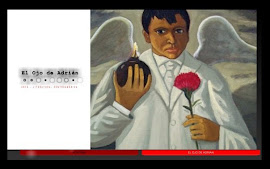
POETRY
Derek Walcott
SLU, 1930
A Far Cry From
The recipient of the 1992 Nobel Prize in Literature, Derek Walcott was born in
In 1957, he was awarded a fellowship by the Rockefeller Foundation to study the American theater. Since then, he has published numerous collections of poetry, most recently Selected Poems (Farrar, Straus & Giroux, 2007), The Prodigal: A Poem (2004), and Tiepolo's Hound (2000)…
About his work, the poet Joseph Brodsky said, "For almost forty years his throbbing and relentless lines kept arriving in the English language like tidal waves, coagulating into an archipelago of poems without which the map of modern literature would effectively match wallpaper. He gives us more than himself or 'a world'; he gives us a sense of infinity embodied in the language."
…He currently divides his time between his home in
A wind is ruffling the tawny pelt
Of Africa, Kikuyu, quick as flies,
Batten upon the bloodstreams of the veldt.
Corpses are scattered through a paradise.
Only the worm, colonel of carrion, cries:
"Waste no compassion on these separate dead!"
Statistics justify and scholars seize
The salients of colonial policy.
What is that to the white child hacked in bed?
To savages, expendable as Jews?
Threshed out by beaters, the long rushes break
In a white dust of ibises whose cries
Have wheeled since civilizations dawn
>From the parched river or beast-teeming plain.
The violence of beast on beast is read
As natural law, but upright man
Seeks his divinity by inflicting pain.
Delirious as these worried beasts, his wars
Dance to the tightened carcass of a drum,
While he calls courage still that native dread
Of the white peace contracted by the dead.
Again brutish necessity wipes its hands
Upon the napkin of a dirty cause, again
A waste of our compassion, as with
The gorilla wrestles with the superman.
I who am poisoned with the blood of both,
Where shall I turn, divided to the vein?
I who have cursed
The drunken officer of British rule, how choose
Between this
Betray them both, or give back what they give?
How can I face such slaughter and be cool?
How can I turn from







